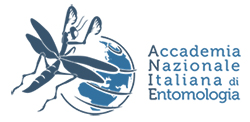
Andrea Lucchi
andrea.lucchi@unipi.it
BIOGRAPHY
PHD obtained in 1991 at the University of Perugia (Italy). Currently, Full Professor at the Department of Agriculture, Food & Environment (Pisa University-Italy), where he teaches “Viticultural Entomology” and “Agricultural Entomology”. Andrea’s research activity has resulted in 270 publications on national and international ISI journals, 62 on Scopus. His research interests are focused on: harmfulness and biological control of grapevine pests, pheromone mating disruption, implementation of “Area Wide Pest Management” strategies, Insect vibrational communication with particular reference to grapevine leafhoppers and planthoppers, morphology of insect pheromone glands and antennae. Since 2009, he works with APHIS-USDA, SAG Cile, EMBRAPA Brasile and COSAVE Latin America for the management of Lobesia botrana, accidentally introduced in North and South America in recent years. Since 2014, he is vice-president of the International Organization for Biological and Integrated Control (IOBC-WPRS). Since 2016, he is EFSA expert on non-insecticide strategies to control serious dangers to plant health and on “High Risk Plants”.
LUCCHI A, SAMBADO P, JUAN ROYO AB, BAGNOLI B, CONTE G, BENELLI G 2018. Lobesia botrana males mainly fly at dusk: video camera-assisted pheromone traps and implications for mating disruption. JOURNAL OF PEST SCIENCE 91(4): 1327-1334.
LUCCHI A, BENELLI G 2018. Towards pesticide-free farming? Sharing needs and knowledge promotes Integrated Pest Management. ENVIRONMENTAL SCIENCE AND POLLUTION RESEARCH 25:13439–13445.
IORIATTI C, LUCCHI A 2016. Semiochemical Strategies for Tortricid Moth Control in Apple Orchards and Vineyards in Italy. JOURNAL OF CHEMICAL ECOLOGY 42(7): 571-583
IORIATTI C, ANFORA G, TASIN M, DE CRISTOFARO A, WITZGALL P, LUCCHI A 2011. Chemical ecology and management of Lobesia botrana (Lepidoptera: Tortricidae). JOURNAL OF ECONOMIC ENTOMOLOGY 104(4):1125-1137.
ERIKSSON A, ANFORA G, LUCCHI A, LANZO F, VIRANT-DOBERLET M, MAZZONI V 2012. Exploitation of Insect Vibrational Signals Reveals a New Method of Pest Management. PLoS ONE 7(3): e32954. doi:10.1371/journal.pone.0032954.
